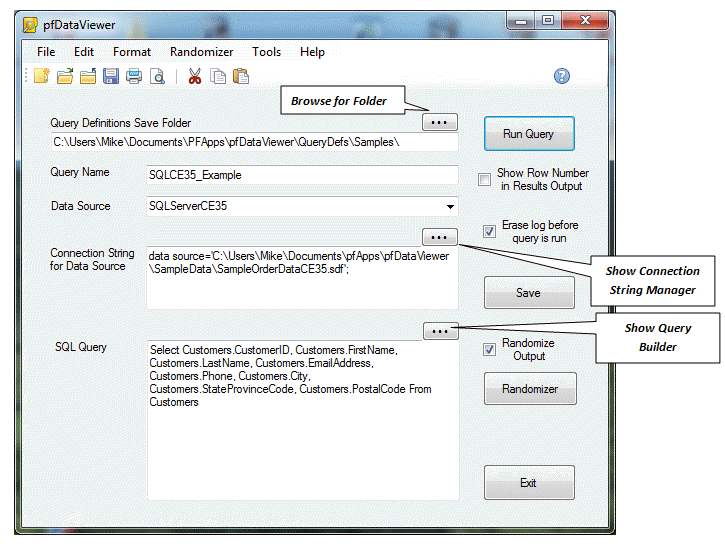Main Form Overview
Main Form Overview
You will see the Main Form first when you start the Data Viewer with Data Masking application. This form is used to define the queries to use when generating output data.

Run Query Button
Click this button to run the query and show the results on an output grid.
Show Row Number in Results Output
Select this option to add a row number column to the query output.
Erase log before query is run
Select this option to erase the log window before query is run.
See Messages Overview for more information on log window.
Save Button
Click this button to save the query definition to an external file.
Randomize Output
Select this option to substitute random values for one or more of the output columns.
See Randomizer Column Mapper Form for more information on mapping random values to output columns.
Randomize Button
Click this button to display the Randomizer Column Mapper Form .
Exit Button
Closes form and exits from the application.
You will be prompted to save any unsaved query definition changes.
Query Definitions Save Folder
This is the folder into which query definitions will be saved.
You can use the Browse For Folder button to lookup folder names.
Query Name
This is a unique name that identifies this query.
This name will be used as the filename when the query definition is saved to an external file.
Data Source
Select the database platform from the drop-down list that will be used when reading data for the query.
See Database Type Lists for more information on the possible data sources.
Connection String for Data Source
Connection string used to connect to the data source.
Use the Show Connection String Manager button to show the Connection String Manager for the selected database platform. See Connection String Manager Overview for more information.
SQL Query
Enter the text for the SQL query that will be used to retrieve data from the data source.
You can use the Show Query Builder button to use the Query Builder Form to visually build and test the SQL for the query. See Query Builder Overview for more information.